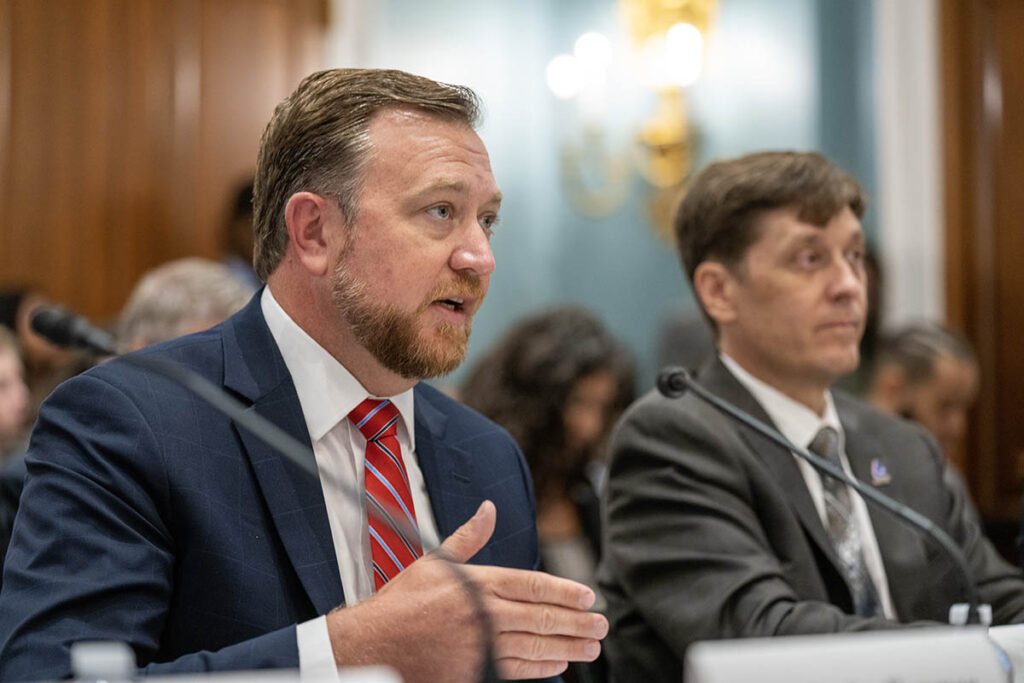
As Congress considers a new five-year Farm Bill, lawmakers should prioritize U.S. Department of Agriculture programs that are crucial to reliable rural electric service and allow electric cooperatives to deliver community benefits beyond providing power, a North Carolina co-op leader told a House panel Tuesday.
“Electric co-ops pride ourselves on being more than just poles and wires companies and have a long history of partnering with USDA to improve quality of life in rural communities,” Joshua Winslow, CEO and general manager of Brunswick Electric Membership Corp., told the House Agriculture Subcommittee on Commodity Markets, Digital Assets and Rural Development at a hearing on rural development programs.
USDA offers co-ops a valuable toolbox of programs that help spur economic development, improve energy efficiency, develop community solar projects and spark grid innovation, Winslow said.
Across North Carolina, he said, $88 million from the Rural Economic Development Loan and Grant program has been awarded to electric co-ops and other local utilities, resulting in $1 billion in new capital investments and the creation of 6,000 new jobs.
Brunswick EMC, which is based in the town of Supply and serves nearly 100,000 consumer-members, has received almost $3.7 million for projects ranging from weatherization programs to investing in new business centers.
North Carolina co-ops and their consumer-members have also benefited from the Rural Energy for America Program, which provides loans and grants to develop renewable energy systems and energy efficiency projects. With that funding, North Carolina co-ops have been able to install 2,160 kilowatts of community solar capacity, Winslow said.
All of these USDA-funded programs to benefit rural communities come on top of the core Rural Utilities Service Electric Program that provides co-ops with essential funding for electrical infrastructure projects of all sizes.
“RUS provides more than just financing, it provides the certainty that the federal government is committed to basic needs in rural America,” Winslow said. “From a reliability perspective, it is critical that cooperatives know that RUS will continue to be a trusted lender for baseload capacity as well as intermittent energy sources.”
Winslow praised the recent action by Congress to enact permitting reform measures as part of the bipartisan deal to raise the debt limit but said more needs to be done. Co-ops, in some cases, are required to go through the permitting process when they apply for RUS loans to expand, upgrade and modernize their systems or to remove vegetation that is threatening power lines on federal land.
“Reforms to the permitting process included in the Fiscal Responsibility Act, including firm timelines on permitting decisions from the federal government and greater involvement with project developers, will help speed up the process,” he said. “Electric co-ops around the country are grateful to Congress for including these important reforms.
“To meet our nation’s growing electricity needs, Congress should consider additional reforms, including limiting costly litigation that can delay projects indefinitely and streamlining small projects we already know have minimal environmental impacts.”
Erin Kelly is a staff writer for NRECA.